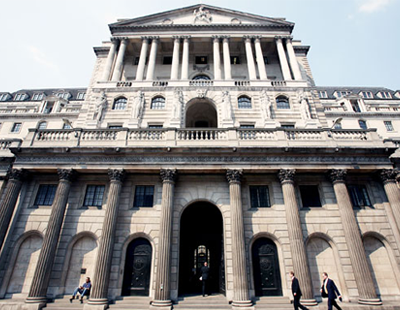The Bank of England’s continued rise in interest rates – the latest being a shift up to 1.25% - is, in my opinion, inflammatory nonsense. Trigger happy doom-mongering could damage the housing market and therefore the UK economy. Lloyd, Chairman of the independent not-for-profit Conveyancing
The Bank’s fifth-rate rise in a row – has been incredibly reluctant to increase the rates for many years before - is only pushing up inflation further, while its gloomy predictions could become a self-fulfilling prophecy.
The property market is currently buoyant and showing no signs of slowing down, but these trigger-happy rate rises are enough to send shockwaves through the market and really damage consumer confidence.
People move house for many reasons and financial indicators rarely significantly deter a determined buyer or seller in the short term, but if we continue to talk the market down and the Bank of England continues to rise interest rates for no good reason, then motivation could be affected across the board.
I believe that, while the transactional property market will not be affected in the short term and house prices will continue to rise, further action by the Bank of England could damage the market.
Those committed to moving house or purchasing a new property will most likely do so as they have the finance in place to proceed and house prices are continuing to rise.

I agree with some economists that house prices are set to rise nationally at 6% as a minimum for the remainder of this year and more in pockets across the country, where demand is high and properties for sale are scarce, and this will continue to be the case in my opinion despite the interest rate rises and increases in inflation and household expenditure.
The Bank will be guilty of curtailing the property market if the focus continues to be on bad and false news which is not based on economic reality and sound economic principles which have been proven over time.
Raising rates again will create a vicious circle of increased household expenditure and increased inflation.
There has been a lot of speculation about raising fuel prices and how this will lead to inflation and the need for an increase in interest rates to prevent this, which is nonsense.
Increasing household expenditure by increasing interest rates increases inflation – period. Only savers and banks and building societies benefit from increasing interest rates as they receive more interest on their savings and lend money at higher rates of interest.
Instead, the Bank of England needed to slow down its series of interest rises as inflation was to be expected following Covid-19.
There is a lot of excess money in the UK monetary system at the moment following the pandemic, with people not being able to spend as they did previously during lockdown and Covid restrictions, leaving many with savings more than the normal amount, and with the government pumping money into the system through the Bank of England to prop up the economy over the last two years.
There was therefore always going to be a high inflation figure as we came out of Covid as life returns to normal and people spend their savings, and this has been exacerbated by the war in Ukraine and the resulting rise in energy prices. I anticipate that this inflationary situation will last for the rest of this year and then begin to normalise, without the need for undue concern.
The government’s new policies to help first-time buyers and encourage up to 2.5 million tenants to buy their Housing Association properties at a discount through an extension of the Right to Buy scheme will help to energise the housing market.
The government is also looking to relax the rules in relation to the 3% credit stretch test for mortgage borrowers this year, as well as looking at insurance for higher LTV (loan to value) lending for first-time buyers. Proposed changes to leaseholds could also breathe fresh life into the market with thousands more attracted to buy flats by the chance to genuinely own their home instead of being tied in by restrictive leaseholds.
I anticipate that residential transaction numbers will remain positive for the remainder of this year and in 2023 and that the government will need to either arrest the cost of living through energy price cuts by cutting the tax on fuel or live with the inflationary consequences. House prices will continue to rise as there is demand over supply, lending is still readily available for house movers and the UK economy remains strong.
*Lloyd Davies is Chairman of the Conveyancing Foundation













.jpg)
.jpg)






.png)



Join the conversation
Be the first to comment (please use the comment box below)
Please login to comment